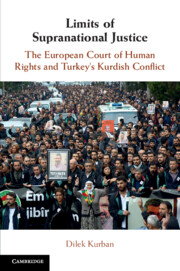Though the Polish rule of law crisis has been on the scholarly agenda since the Law and Justice Party (PiS) took power in 2015, the individual agents of legal disruption within the judiciary have been largely off the radar. This intervention aims to fill this gap. This article analyses the legal mobilisation practices of the Supreme Court (SC) judges appointed by the PiS party in a court-packing manner after 2017. It is argued that this is a specific type of legal mobilisation; because it is conducted from within the legal system by judges, it aims to challenge doctrinal views strategically and to legitimise the status of unlawfully elected judges, which consequently destabilises the legal system. Because the legal tools to solve the conflict appear to have been exhausted, new judges engage in public discourse to convince citizens that they have a right to sit on the bench. In the first part of this paper, I critically analyse this public discourse in order to explain the framing of the rule of law crisis. The analysis of this discourse is drawn from 106 texts produced by new SC judges between 2017 and 2023. It is argued that although the ‘populist’ group of SC judges is internally differentiated and does not exhibit clear ideological linkage with the PiS party, it strategically produces certain legal narratives in which their appointments and judicial practices at the SC conform to the Constitution and to relevant statutes and, as such, are legitimate in legal terms. The new judges’ narratives are based on four populist dichotomies that distinguish them from old judges (legitimacy–lack of legitimacy, autonomy–political dependence, formal rule of law–legal anarchy and accountability–corporatism). In the second part, the article proceeds to analyse selected case law of the Supreme Court to explore whether and how court-packing makes it more responsive to the legal mobilisation of the conservative Christian organisation Ordo Iuris (OI) and helps the governing party maintain its power. It is argued that the judicial mobilisation inside the packed Supreme Court is mostly of a discursive nature, as there is limited evidence that newly appointed judges side ideologically with the government and right-wing organisations in recent case law.
